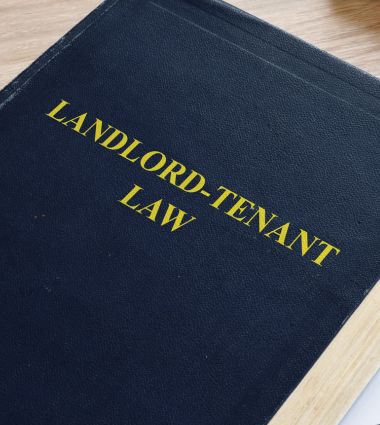How To Transfer The Property of the Deceased
When a loved one passes away, transferring their property and assets can be a complicated process. As the executor of the estate, you have important legal and financial responsibilities. This article provides a step-by-step guide on how to transfer the property of the deceased. Learn the required procedures for reporting the death, valuing the estate, paying debts and taxes, and distributing assets to beneficiaries.
Complete each step in estate administration according to the checklist provided. With this helpful information, you can transfer property smoothly while adhering to all legal requirements. Now let's examine the key steps you need to take as executor when transferring the property of someone who has passed away.
Understanding Property Transfer After Death in Canada
Property titles are important legal documents that establish who owns a piece of real estate, whether it's a house, land, or commercial property. These documents are like certificates that show who has the legal right to use and sell the property.
There are two main types of property titles, and they can affect how property is transferred after someone passes away. The type of title and the people listed as owners can also impact who inherits the property.

Joint Tenancy
With joint tenancy, the deceased’s share of the property passes directly to the surviving joint tenants. The property does not form part of the deceased’s estate. To establish joint tenancy, the property title must expressly state that the owners hold the property as “joint tenants with rights of survivorship”. If the intention is not clearly expressed in the title, the default ownership is tenancy in common.
Tenancy in Common
With tenancy in common, each owner has a distinct and transferable share of the property. When an owner dies, their share forms part of their estate and can be transferred to their beneficiaries as per their will. The surviving owners maintain their share in the property. Tenancy in common provides more flexibility in estate planning compared to joint tenancy. However, it can lead to disagreements between the beneficiaries and the surviving owners.
The transfer of property after death depends on the type of ownership. It is important to know the effects of joint tenancy versus tenancy in common and express clear intentions in legal documents to avoid future disputes. Consulting a legal professional regarding estate planning is highly advisable.
The Role of Wills in Property Transfer
A will is a legal document that specifies how a person's assets and property should be distributed after their death. In Canada, wills are fundamental to transferring ownership of the deceased's assets and estate to their beneficiaries.
Without a will, the government will distribute the deceased's assets and property according to the province's succession laws. This can lead to assets being transferred to unintended individuals or the government itself. To ensure your assets are transferred to your intended beneficiaries, you must draft a legally valid will.
A will must be signed by the will-maker in front of two witnesses who are not beneficiaries named in the will. The will should identify the will-maker, their beneficiaries, executors, and how the assets should be distributed. The will should also be properly dated to avoid ambiguity or disputes over a later will.
Upon death, the named executors in the will are responsible for locating the most current will, having it probated in court, and distributing assets to the listed beneficiaries accordingly. The will provides executors and beneficiaries with clear instructions to properly settle the estate. Without a will, settling the estate can be complicated, time-consuming and lead to family disputes.
A properly drafted will is essential to transfer the property of the deceased in Canada. It provides clear instructions for the distribution of your estate and helps avoid legal complexities that can arise.
Step-by-Step Guide to Transferring the Deceased's Property
Here is a step-by-step guide to transferring the property of the deceased in Canada:

Locate the Will
To begin the process of division of property of the deceased, you must first locate their last will, if there is one. The will specifies how the deceased wished for their estate to be distributed and names an executor to carry out these wishes. If no will exists, the estate will be subject to the province’s laws of intestacy.
Apply to be the Estate Administrator
As the named executor, you must apply to the court to be formally appointed as the estate administrator. This involves filing a petition for probate or administration, paying required court fees, and providing details about the deceased’s assets and beneficiaries. The court will review your petition and grant you letters of probate or letters of administration, officially appointing you as the administrator.
Notify Beneficiaries and Creditors
Once appointed as administrator, you must notify all beneficiaries named in the will, as well as creditors of the estate. Beneficiaries must provide identification and banking details to facilitate the distribution of assets. Creditors have a specified time limit to claim the estate before the assets are distributed.
Distribute the Estate
As administrator, you are responsible for ensuring that the deceased’s debts and taxes are paid from the estate. Any remaining assets are then distributed to beneficiaries according to the terms of the will or laws of intestacy. This includes transferring titles of ownership for properties, vehicles, investments, and other assets.
Following the proper procedures and distributing the estate on time fulfils your responsibility as the appointed administrator when you transfer the property of the deceased. The beneficiaries can then receive their rightful inheritance, and the deceased's final wishes are honoured.
How long does the probate process usually take?
The probate process in Canada typically takes between 6 to 12 months, depending on the complexity of the estate. Simple estates with a valid will and limited assets may only take 3 to 6 months. More complex estates, especially those without a will (intestate), can take 9 months to over a year to fully probate. The process involves submitting the will to the court, notifying beneficiaries and creditors, paying any outstanding debts or taxes owed, and distributing the remaining assets to heirs.

What assets are subject to probate?
Most assets that were solely owned by the deceased at the time of death are subject to probate, including:
- Real estate properties
- Bank accounts
- Stocks and bonds
- Vehicles
- Jewelry and collectibles of high value
Some assets that bypass probate include:
- Jointly owned assets that transfer directly to the surviving owner
- Assets with designated beneficiaries like life insurance policies or RRSPs
- Trust assets
Do I need a lawyer to transfer property after death?
While it is possible to navigate the probate process yourself, most executors and beneficiaries work with an estate lawyer to transfer property after a death in Canada. A lawyer can help:
- Locate and determine all probate assets in the estate
- Prepare the necessary probate application and paperwork
- Help resolve any disputes or complications with the will or estate
- Ensure the proper steps are taken to legally transfer assets to the beneficiaries
For most estates, the legal fees charged by an estate lawyer are paid from the estate assets, so beneficiaries are not typically responsible for upfront legal costs. Hiring a lawyer ultimately helps simplify the probate process and gives executors and beneficiaries confidence that the estate is being handled properly according to the law.
Conclusion
To transfer the property of the deceased in Canada can seem like a difficult process, but breaking it down into manageable steps makes it more approachable. Speak with an estate lawyer to understand the laws and your responsibilities. Locate key documents to determine assets and finalize the will. Notify relevant agencies once you have authorization.
While grieving your loss, also appreciate that your actions honour your loved one's wishes. With care and patience, you can successfully transfer their property and close this meaningful chapter. Though difficult, take pride in carrying out their legacy and serving as a guardian of their estate.
Real Estate
Family Law
Wills & Estates
Immigration
Join Our Mailing List.
Sign up with your email to receive our newsletter and stay informed about the latest legal developments and special offers.






















































































